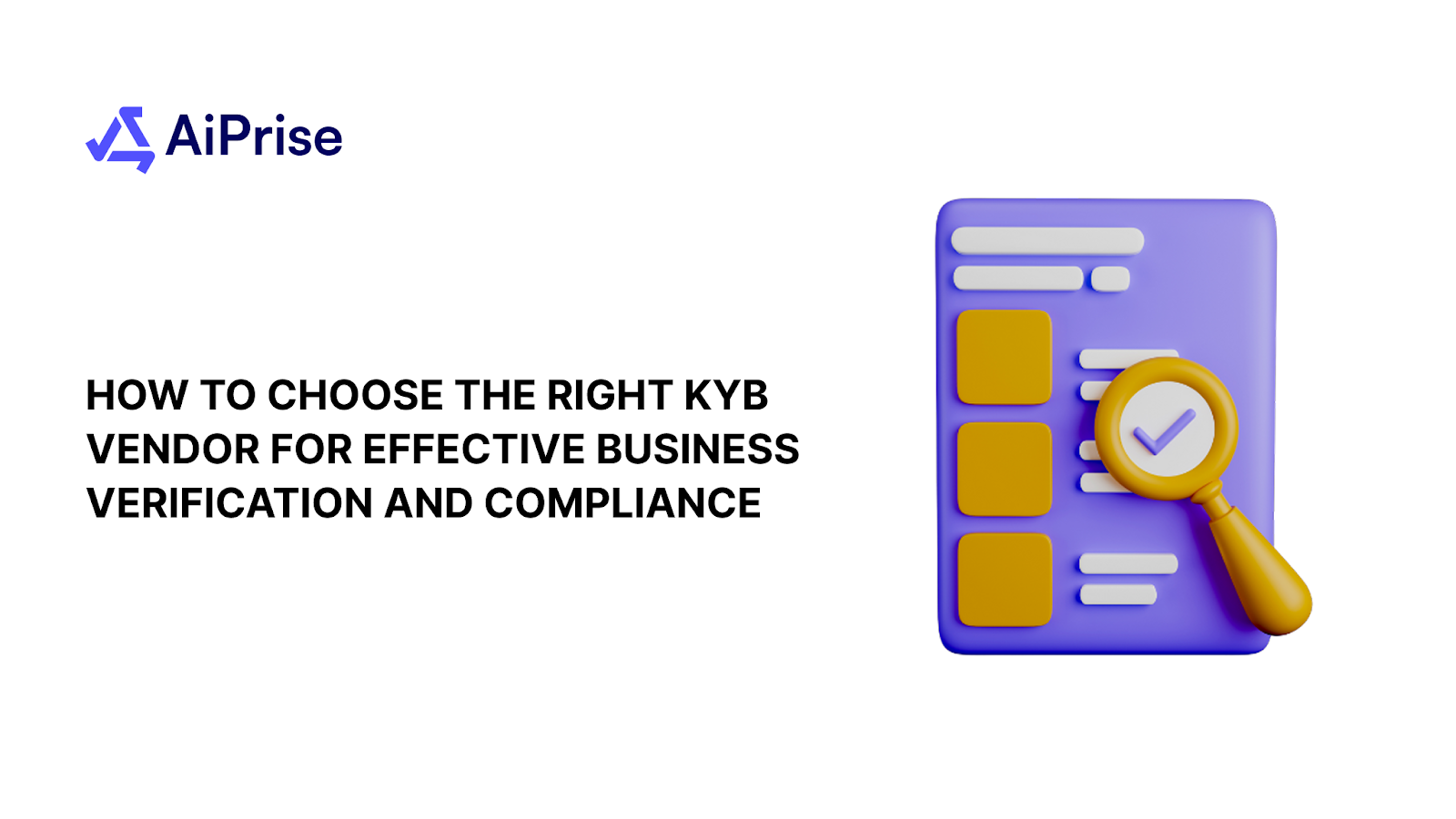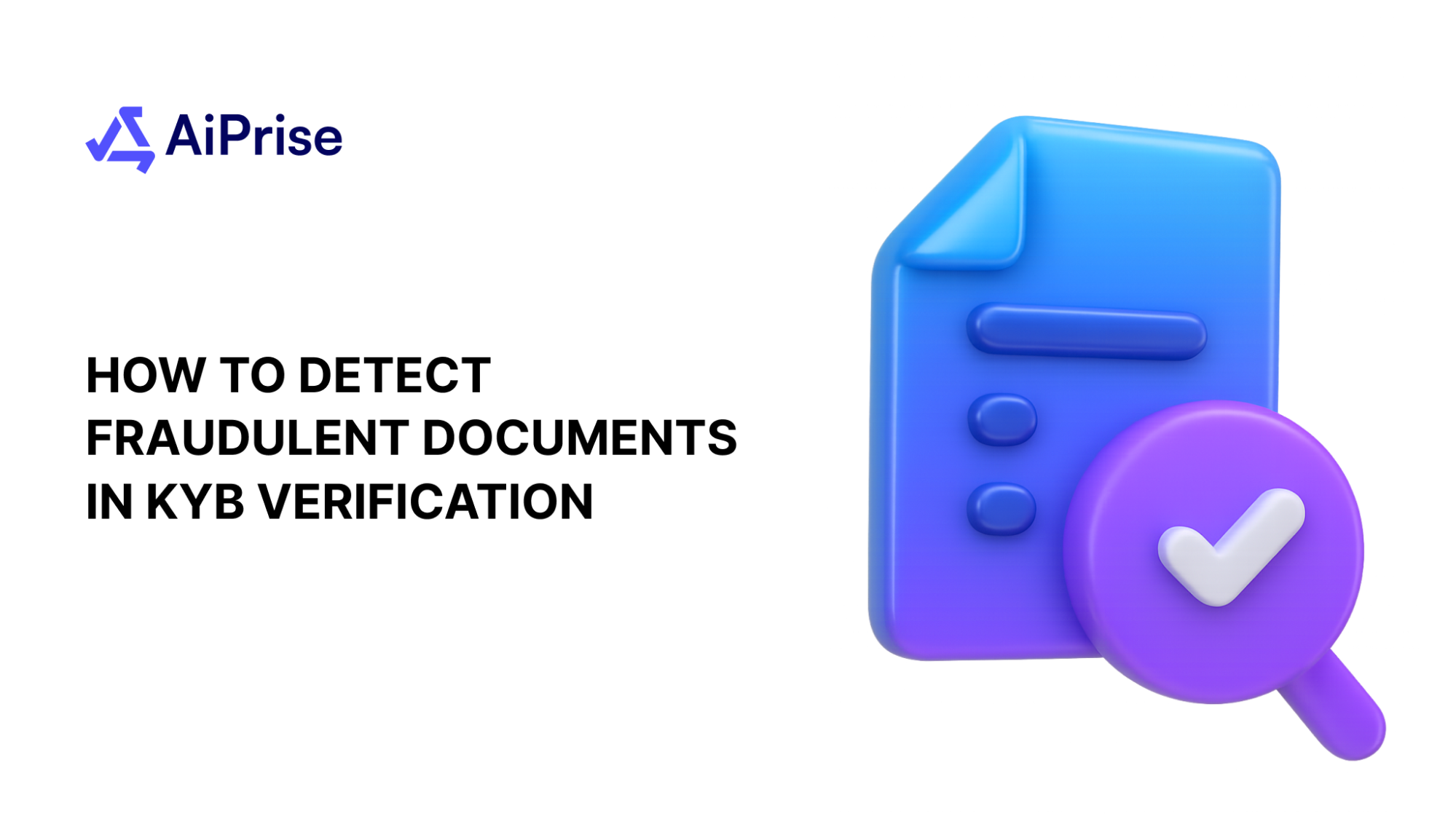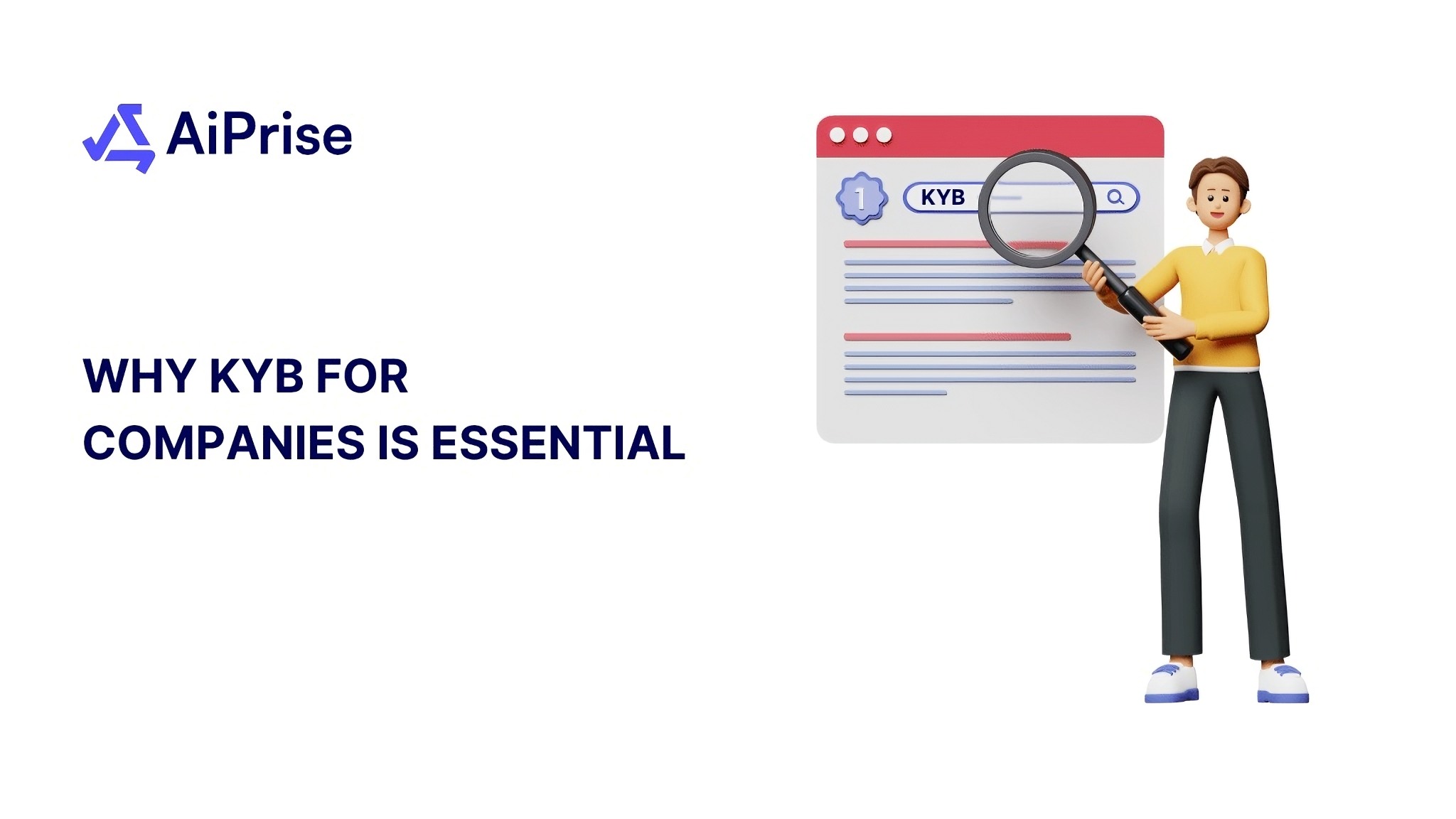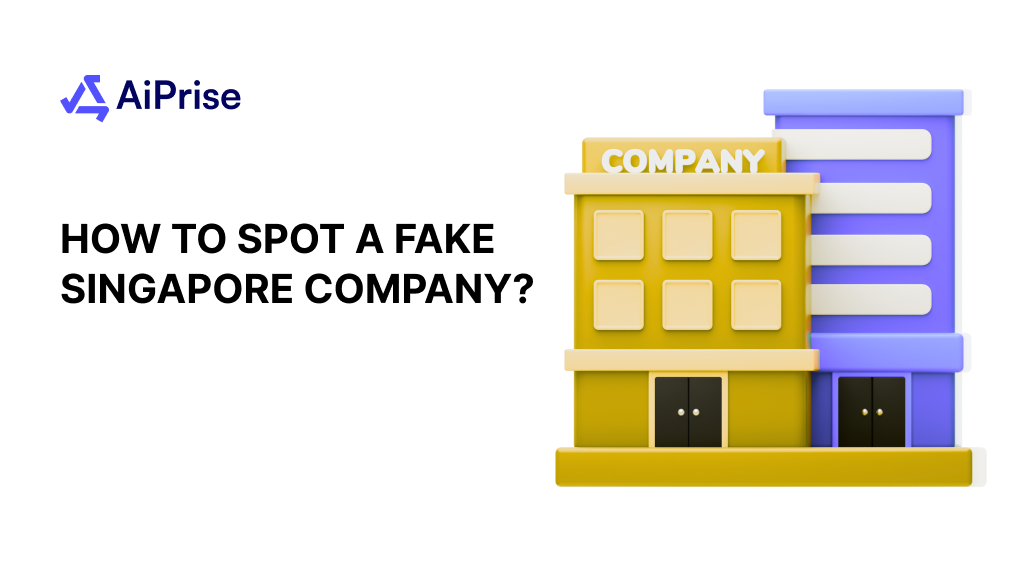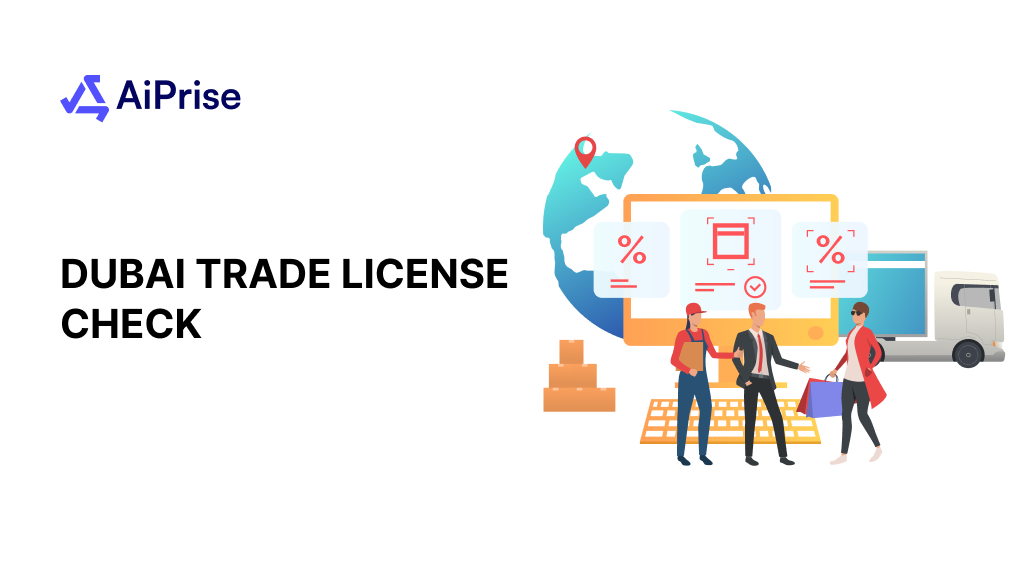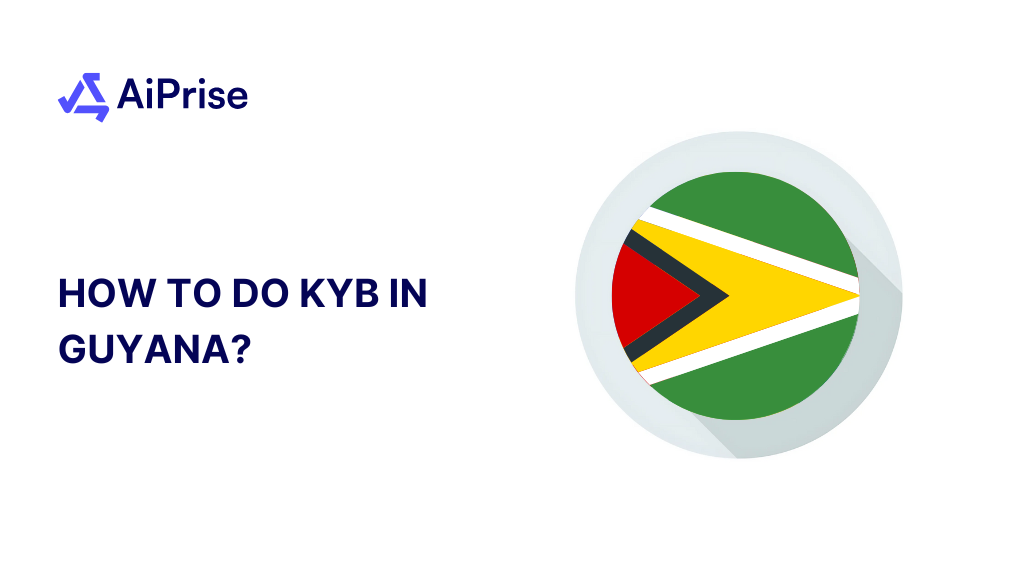AiPrise
6 min read
March 26, 2025
How To Verify Businesses In Liechtenstein?

Key Takeaways










Liechtenstein, known for its robust financial sector and business-friendly environment, is a prominent hub for international trade and investment. However, conducting business here requires strict compliance with Know Your Business (KYB) regulations.
KYB is a crucial process for verifying the legitimacy and compliance of corporate entities, ensuring transparency, and minimizing risks.
This guide provides a comprehensive overview of conducting KYB in Liechtenstein, from understanding the regulatory framework to best practices for effective implementation.
KYB in Liechtenstein
Know Your Business (KYB) is a due diligence process that involves verifying the identity and legitimacy of business entities. In Liechtenstein, KYB is particularly important due to the country's strong emphasis on financial integrity and compliance with international standards.
The KYB process typically includes verifying the business's registration, understanding its ownership structure, and assessing potential risks associated with the entity. This is a regulatory requirement and a best practice for maintaining trust and transparency in business transactions.
As you delve deeper into the specifics of KYB, understanding Liechtenstein's legal and regulatory framework will provide you with essential insights.
Key Regulations Governing KYB in Liechtenstein
Liechtenstein's legal landscape for KYB is shaped by national regulations and European Union directives. The country adheres to strict Anti-Money Laundering (AML) laws, which mandate comprehensive due diligence on business relationships.
Key components of this framework include:
- Due Diligence Act (DDA): Requires businesses to verify and monitor clients and partners to prevent money laundering and terrorism financing.
- Due Diligence Ordinance (DDO): Provides detailed guidelines on conducting due diligence, including KYB processes.
- Financial Market Authority (FMA): Oversees financial institutions and ensures compliance with AML regulations.
- European Union Directives: Liechtenstein implements EU directives related to AML and KYB as part of its commitment to international standards.
Understanding and adhering to these regulations ensures your KYB processes align with Liechtenstein’s legal requirements. With this knowledge, you can now explore the documents required to conduct effective KYB.
AiPrise's services are designed to help businesses steer these complexities, providing peace of mind through expert compliance support.
Key Documents Required for KYB in Liechtenstein
Several key documents are essential for conducting a successful KYB process in Liechtenstein. These documents help verify the legitimacy of a business and its ownership structure:
- Business Registration Documents: This includes the certificate of incorporation and any relevant operating licenses.
- Proof of Address: Recent utility bills or bank statements can prove the business's operational address.
- Ownership Structure Documentation: This involves identifying all Ultimate Beneficial Owners (UBOs) with a significant stake in the company.
- Identification Documents: IDs of directors and authorized representatives are also required for verification purposes.
Having these documents ready will streamline your KYB process. Now that you know what documents are necessary, let's look at how to effectively conduct the KYB process in Liechtenstein.
Process of Conducting KYB in Liechtenstein
Conducting KYB in Liechtenstein involves several systematic steps to ensure compliance with local regulations:
- Collect Documentation: Start by gathering all required business, financial, and ownership records.
- Verify Ownership Structures: Identify and validate the Ultimate Beneficial Owners (UBOs) to ensure transparency.
- Cross-check with Regulatory Databases: Utilize resources from the FMA and international compliance databases to confirm legitimacy.
- Conduct Risk Assessments: Evaluate the business’s financial health and identify potential compliance risks.
- Ongoing Monitoring: Continuously update and review KYB records to reflect ownership, operations, or compliance status changes.
Following these steps will help you establish a robust KYB process. However, it’s essential to be aware of potential challenges during implementation.
Challenges in KYB Implementation in Liechtenstein
Implementing an effective KYB process can come with its own set of challenges:
- Data Collection Difficulties: Gathering accurate information from businesses can be time-consuming and resource-intensive.
- Regulatory Complexity: Navigating varying regulations across jurisdictions can complicate compliance efforts for businesses operating internationally.
- Staff Competency Gaps: A shortage of skilled personnel explicitly trained in KYB processes may lead to inefficiencies.
- Complex Ownership Structures: Identifying UBOs in multinational corporations with layered ownership can be time-consuming.
These challenges highlight the importance of adopting best practices to enhance your KYB processes. Let’s explore some effective strategies next.
AiPrise’s automated solutions can mitigate data collection difficulties and regulatory complexity, ensuring smoother KYB implementations.
Best Practices for Effective KYB in Liechtenstein
To ensure a smooth and efficient KYB process, consider implementing these best practices:
- Establish Clear Policies: Develop comprehensive internal policies that clearly outline your KYB procedures and responsibilities.
- Leverage Technology: Utilize automated solutions to streamline data collection and verification processes, reducing manual errors.
- Regular Training: Invest in ongoing training for staff involved in KYB to keep them updated on regulatory changes and best practices.
- Maintain Comprehensive Records: Keep detailed records of all verification activities to facilitate audits and compliance checks.
- Collaborate with Local Experts: Partnering with professionals familiar with Liechtenstein’s regulatory landscape can provide valuable insights.
- Implement Real-Time Monitoring: Leverage technology to receive alerts about changes in compliance status or business operations.
Incorporating these practices into your operations can significantly enhance your overall compliance efforts. As we conclude this discussion on KYB in Liechtenstein, it’s essential to summarize key takeaways for effective implementation.
Discover how to effectively perform KYB in Australia here.
Conclusion
Liechtenstein’s stringent regulatory environment demands more than essential compliance, requiring a proactive and strategic approach to KYB. Effective KYB in Liechtenstein ensures your business aligns with local and international standards and positions you as a trustworthy and reliable partner in a competitive market.
To stand out, focus on turning KYB from a regulatory requirement into a business advantage. By streamlining your processes with the right tools and continuously monitoring for compliance, you can mitigate risks and build long-lasting, secure partnerships.
AiPrise is here to simplify this journey for you. With our advanced KYB solutions tailored to Liechtenstein’s unique requirements, we empower your business to achieve compliance with ease and efficiency. Let AiPrise help you take the stress out of KYB so you can focus on growth. Visit AiPrise to get started today.
You might want to read these...

Aiprise has helped streamline our KYB (Know Your Business) flow in 100+ countries. No other tool comes close.





Speed Up Your Compliance by 10x
Automate your compliance processes with AiPrise and focus on growing your business.


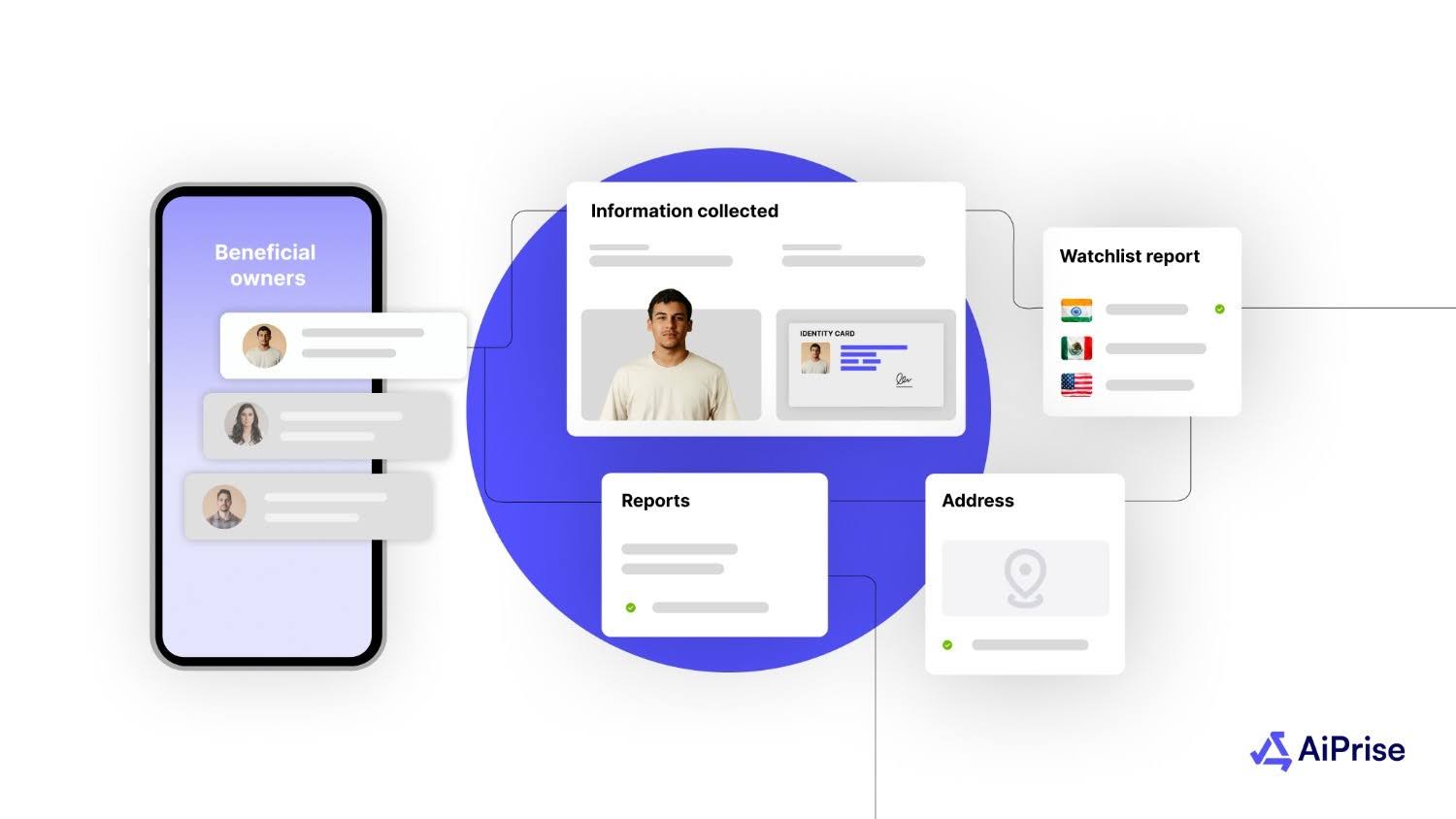

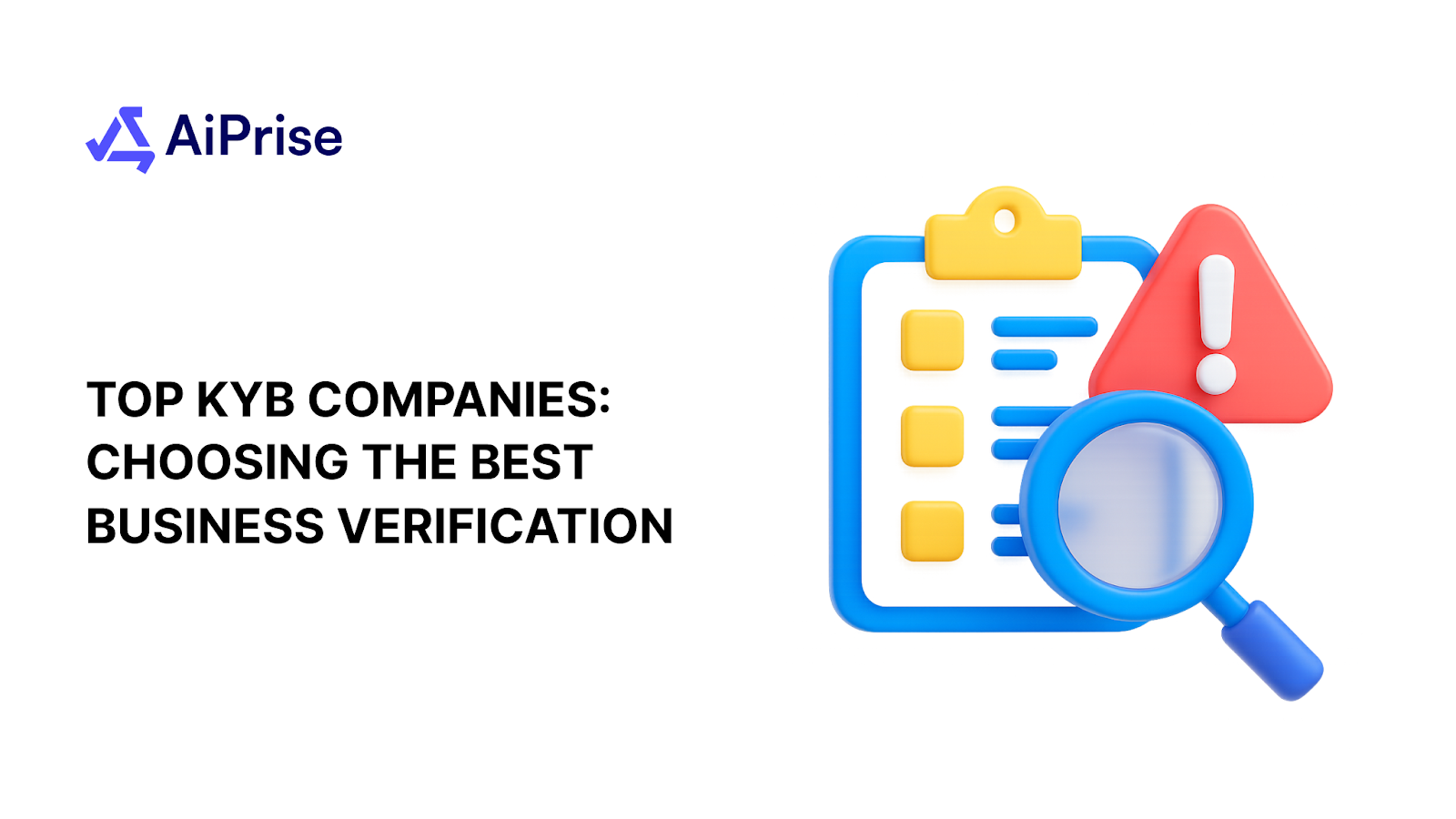
%20Can%20Improve%20Your%20Compliance%20Strategy.png)
